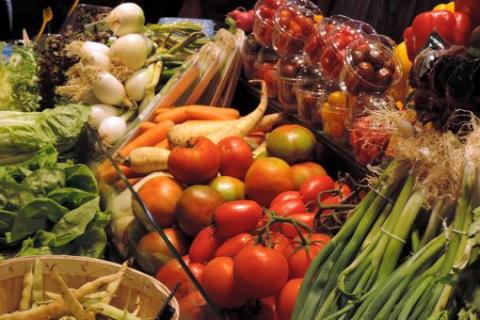Lower prices on fruits and vegetables help save thousands of lives
Price reduction policies would affect non-Hispanic whites and blacks equally. In comparison, a mass media campaign would be about 35 percent less effective in preventing deaths from cardiovascular disease in non-Hispanic blacks.
"Poor diet is a large contributor to cardiovascular disease, which is the biggest killer in the United States. Governments must therefore implement effective dietary policies to tackle this growing burden," said Jonathan Pearson-Stuttard, lead researcher and academic clinical fellow and public health registrar at Imperial College London. "Both mass media campaigns and achieving price reductions of fruits and vegetables are important tools in achieving this."
For estimates, researchers from the Friedman School of Nutrition Science and Policy at Tufts University and the University of Liverpool created a model called the U.S. IMPACT Food Policy Model. The model includes projections of U.S. demographics and cardiovascular death rates to 2030, plus current and projected fruit and vegetable intake. The model allowed the team to simulate the effects of various policies on dietary habits, and the impact of change in those habits on heart disease and stroke risk. The researchers then compared how many people would be expected to die over 15 years if nothing changed, versus the expected numbers if each policy had been launched, to see how many lives would be saved.
"Population-level policies are powerful tools for reducing cardiovascular disease," said Martin O'Flaherty, M.D., Ph.D., senior author, University of Liverpool, United Kingdom. But the relative effectiveness of a health campaign aimed at improving people's diet compared with a financial incentive—a strategy never tested nationally—has been unclear."
"Strategies that increase the awareness, availability and affordability of healthy foods such as fruits and vegetables should be harnessed and adopted by the U.S.," said Dariush Mozaffarian, M.D., Dr.PH, principal investigator on the overall NHLBI grant and dean of the Gerald J. and Dorothy R. Friedman School of Nutrition Science and Policy at Tufts University. "Further, policies aimed at subsidizing fruits and vegetables could have more equitable effects upon health across race and ethnic groups. And crucially, this can be achieved quickly."

